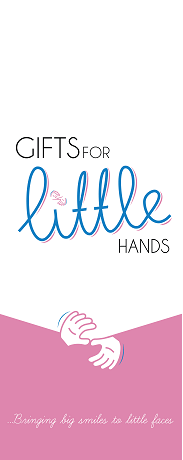Education
How to create a maths genius!
How to create a maths genius!
Hello! My name is Emma Bamford and I am an Early Years Teacher. I have been a qualified teacher for four years teaching Nursery, Reception and Key Stage One. During my time studying for my teaching qualifications I specialised in early years. I am currently teaching in a Nursery Class in a Primary School in Bristol.
The secret to creating a maths genius!
Maths is a subject that many parents find daunting when teaching and supporting their child. During various parent meetings, parents often come to me explaining that they are struggling with supporting their child and ask me what the secret is. Luckily for you I am happy to give the world exclusive……don’t let them know they are learning! The wonderful thing for children aged 2-7 is that the world is a magical and brand new place to be explored. And you have the beautiful job of enhancing the magic, creativity and sparkle of it all.
A lot of maths and math concepts for this age are easily hidden amongst fun and exciting tasks. It isn’t just about counting, although important, children need to explore other concepts before they can understand number and its value.
However we completely understand that sometimes being a parent can be the most exhausting job in the world! So I have created some top tips for supporting your child in a fun way that doesn’t break the bank! If your child is finding some concepts harder to manage try using the activities suggested for the younger ages. It may be that they haven’t quite understood an earlier concept and need it clarifying before moving forward.
2 years and below.
This part of your child’s development is all about exploration. Children at this age begin to notice similarities in different objects.
- Collect some natural objects when out and about with your child and take them home to sort into groups. Make pictures with them and talk about the different properties. For example ‘Both our leaves are green’ or ‘we have three sticks and they are all little, can you find another stick like mine?’This can also be recreated with toys and objects around the house. The importance of this is that you are introducing them to maths language and concepts in a real life scenario.
- Surround your child in maths language, this will encourage them to use it independently and give them a clear meaning. Simple things like getting ready for the day ‘Here is your other sock now we have two.. 1,2’ or ‘how many button holes can you see on your coat? Let’s count together.’
The wood animal building blocks are a great way to support your child to notice similarities and differences around them, found here.
https://giftsforlittlehands.com/product/ludo-superstar-game-copy/
3-4 years
It is really important to understand that a child that can recite numbers to 20 does not necessarily mean they can count. Without showing your child the value behind that number, for example one is one button or five is five buttons, your child will not understand what number names mean.
- Help your child prepare the different meals and give them numeral instructions. For example can you put one piece of toast of your plate and two pieces of toast on mine, how many do we have all together. Can I have four carrot sticks? When your child has grasped the concept of counting ask them to show you the number, this can be by holding up three fingers or making three marks. Start low and work up!
- Buy some string and cheerio’s and make necklaces BUT your child can only eat them once they have a certain amount on their necklace!
- Place three or four empty boxes on the floor. Label each box with a number. How many items can you throw in a turn? How many are in each box? Who threw more? Support your child to make up the rules!
- When out and about look for similar shapes. Ask your child if they can find something that is the same shape as a car wheel once they can match shapes begin naming them.
- Talk about the days of the week, the weather and seasons. Use sand timers to support your child’s understanding of routines and timings.
The Goula counting 1-10 is a great resource for introducing number found here https://giftsforlittlehands.com/product/goula-counting-1-10/
4-5 years
- Once your child has master the technique of number begin to introduce estimation. Save up some pennies and ask you child to guess how many coins you have and then check by counting. If they guess correctly they win the coins! This can be done with anything surprisingly sweets are a favourite!
- Continue to surround your child in maths language like more and fewer. ‘Who has more peas on their plate?’ ‘ Who has less?’ ‘ I had ten but I ate one how many do I have now?’
- – Support your child to make a book about numbers that are important to them such as their birthday, their age, house numbers, and favourite numbers.
- When in the bath give your child different size containers to fill and empty. Can they talk about the different properties of each container? Does a long thin container fill a short wide container?
- Keep a tally of achievement and ask you child to update it daily. This can record how many helpful things they did that day, how many pieces of fruit or veg they’ve eaten or how many times they use the toilet independently. Start by encouraging your child to represent numbers with lines or marks, as your childs confidence grows encourage your child to write numbers.The wood magnetic number board is a great toy to have at home for your child to refer to, found here. https://giftsforlittlehands.com/product/magnetic-drawing-board-with-numbers-and-3-pens/


